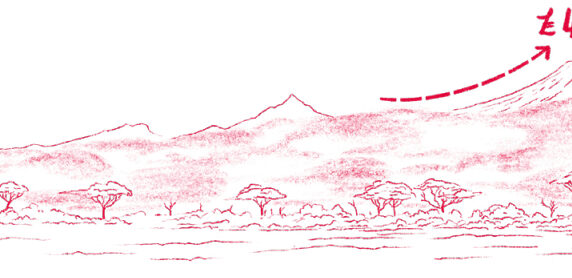13 must-read books on international development
What we dream of is already present in the world.
Rebecca Solnit, Hope in the Dark
There are many brilliant books that speak to international development and the work that we and our members do.
While an abundance of reading choice is always welcome, it can also make it incredibly hard to decide what to dive into next. So, our staff here at Bond have come up with recommendations that may help broaden your horizons and influence your perspective on the world.
Have any thoughts on these, or suggestions of your own? We’d love to hear from you – Tweet us @bondngo.
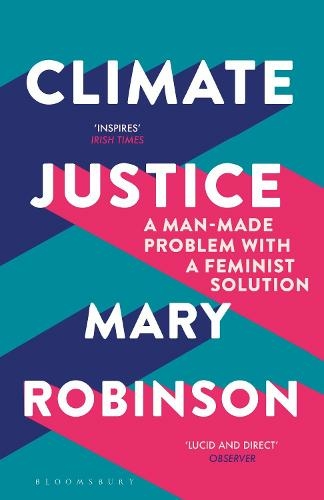 Climate Justice: A Man-Made Problem with a Feminist Solution by Mary Robinson
Climate Justice: A Man-Made Problem with a Feminist Solution by Mary Robinson
This award-winning book – and a favourite of Barack Obama’s – is an urgent call to action by one of the most important voices in the international fight against climate change, sharing inspiring stories and offering vital lessons for the path forward.
Climate change disproportionately affects women, and here former Irish president Robinson shows how they are leading the fight to mitigate the worst effects of it. She does this by gathering stories from grassroots women worldwide who are on the front line of climate action, bringing justice to marginalised communities that contribute the least to global emissions, yet are the most affected by the crisis.
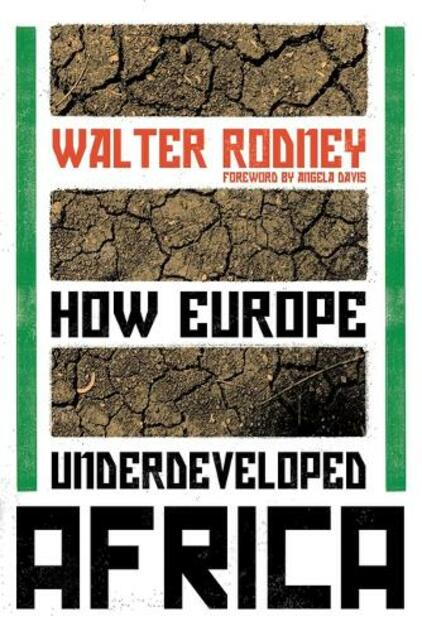 How Europe Underdeveloped Africa by Walter Rodney
How Europe Underdeveloped Africa by Walter Rodney
This classic book details the impact of slavery and colonialism on the history of international capitalism. Rodney makes the strong case that African maldevelopment is a direct product of imperial extraction from the continent, a practice that continues to this day. Extremely well researched, it remains a relevant study of the so-called “great divergence” between Africa and Europe, just as it remains a useful resource for grasping the proliferation of global inequality today.
 Braiding Sweetgrass by Robin Wall Kimmerer
Braiding Sweetgrass by Robin Wall Kimmerer
With a background in botany, Robin Wall Kimmerer uses her expertise to ask questions of nature. And as a member of the Citizen Potawatomi Nation (a federally recognised tribe of Potawatomi people in Oklahoma), she embraces the notion that plants and animals are our oldest teachers.
In this acclaimed book, she shows that the awakening of a wider ecological consciousness needs the acknowledgement and celebration of our reciprocal relationship with the rest of the living world. Only when we can hear the languages of other beings are we capable of understanding the generosity of the earth and learning to give our own gifts in return.
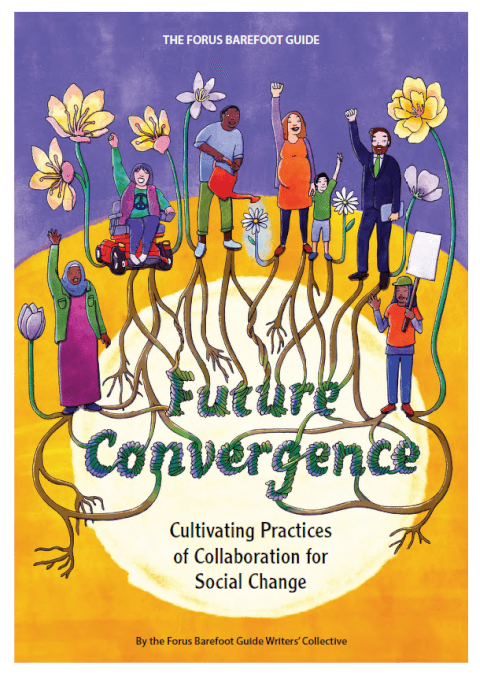 Future Convergence: Cultivating Practices of Collaboration for Social Change by the Forus Barefoot Guide Writers’ Collective
Future Convergence: Cultivating Practices of Collaboration for Social Change by the Forus Barefoot Guide Writers’ Collective
Collaboration is vital for transformative social change, but how do we put it into practice in an ever-evolving sector?
That is the question driving this practical resource, which is intended for individuals and organisations who want to improve their learning processes and social change practices. Written by 31 civil society leaders and practitioners from 20 countries from across the world, you can find practices and experiences that bring diverse people and organisations together towards a vision of a planet that is more equitable, inclusive, humane and sustainable.
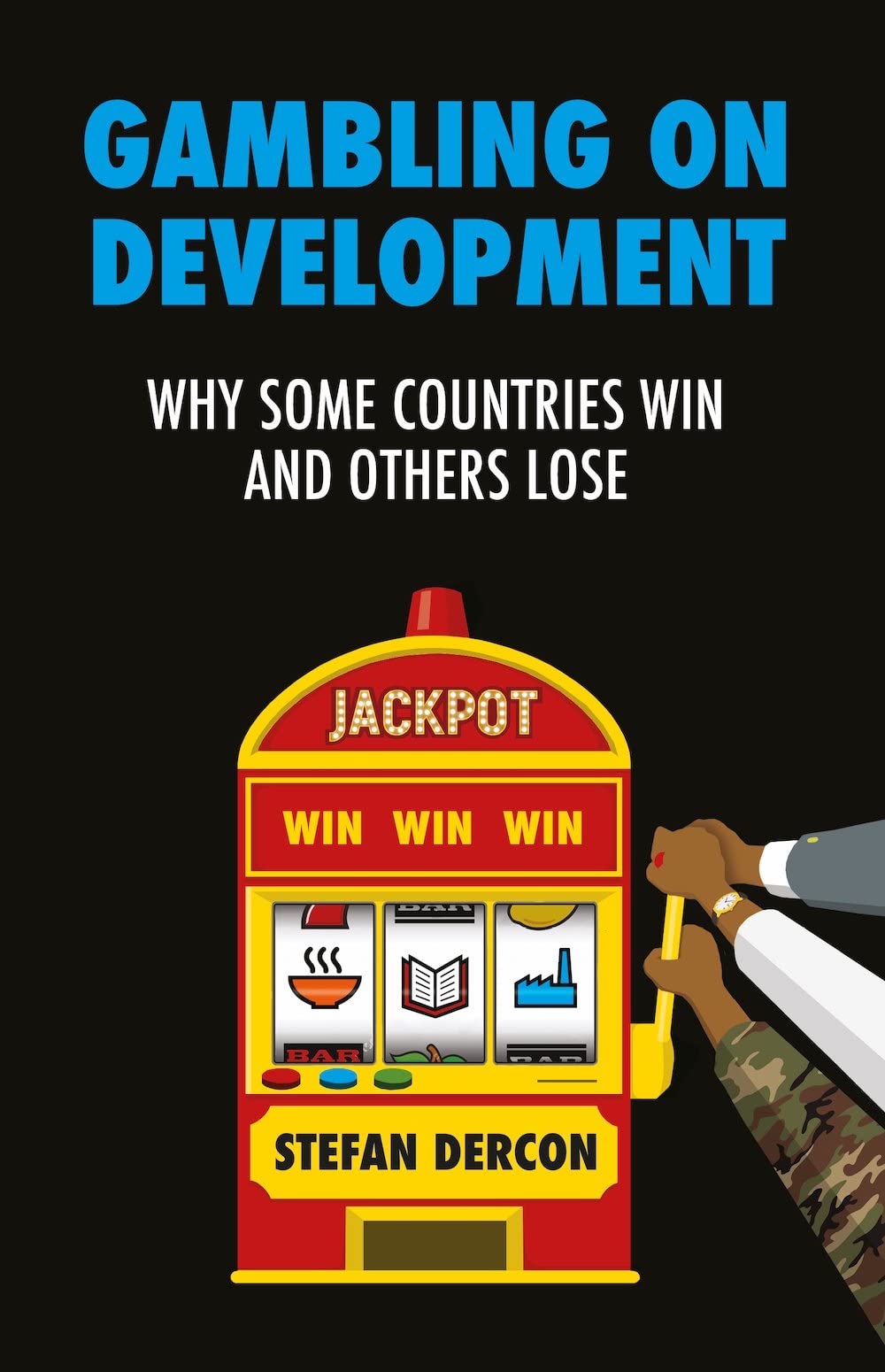 Gambling on Development: Why Some Countries Win and Others Lose by Stefan Derco
Gambling on Development: Why Some Countries Win and Others Lose by Stefan Derco
In the last three decades, low- and middle-income countries have undergone tremendous changes. But why have some countries prospered, while others failed?
Stefan Dercon, Professor of Economic Policy and Director of the Centre for the Study of African Economies at the University of Oxford, and former DFID chief economist, argues that the answer lies not in a specific set of policies, but rather in a key “development bargain”, whereby a country’s elites shift from protecting their own positions to gambling on a growth-based future.
Drawing on conversations with prime ministers, civil servants and ordinary people, this is a probing look at how development has been achieved across the world, and how to assist such successes.
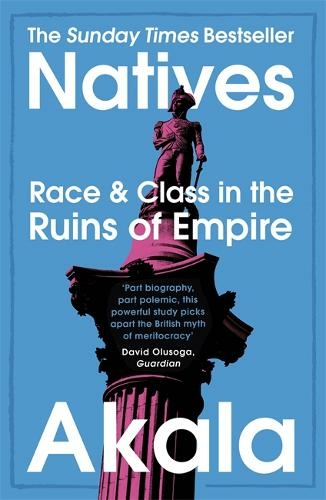 Natives: Race and Class in the Ruins of Empire by Akala
Natives: Race and Class in the Ruins of Empire by Akala
In this searing modern polemic, British rapper Akala draws on his personal experience to look at the social, historical and political factors that have left us where we are today.
Covering everything from the police, education and identity to politics, sexual objectification and the far right, this Sunday Times bestseller speaks directly to British denial and squeamishness when it comes to confronting issues of race and class that are at the heart of the legacy of Britain’s racialised empire.
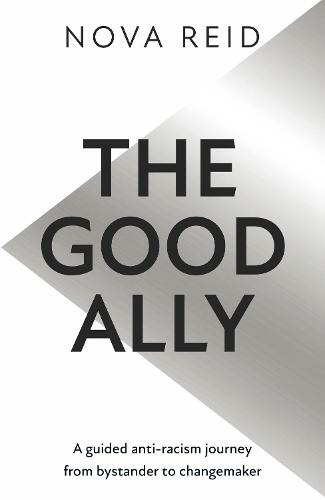 The Good Ally: A Guided Anti-Racism Journey from Bystander to Changemaker by Nova Reid
The Good Ally: A Guided Anti-Racism Journey from Bystander to Changemaker by Nova Reid
A call to arms to become better allies against racism, this book provides a thoughtful approach, centring collective healing, to do so. It is for those who stand against persistent racial injustice and are hungry to expand their knowledge and understanding of systemic racism in Britain and beyond.
Subscribe to our newsletter
Our weekly email newsletter, Network News, is an indispensable weekly digest of the latest updates on funding, jobs, resources, news and learning opportunities in the international development sector.
Get Network NewsIt uncovers the roots of racism and its birthplace, anti-Blackness. This book is for those who not only want to be able to better recognise both subtle and overt forms of racism in action, to examine their powerful role in it, but who want to know what to do about it. The answer often lies within. The Good Ally is the answer to “what next?”
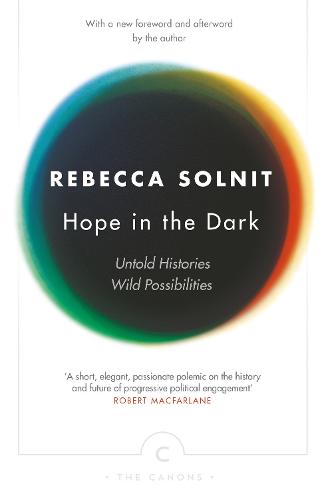 Hope in the Dark by Rebecca Solnit
Hope in the Dark by Rebecca Solnit
Solnit makes a radical case for hope as a commitment to act in a world whose future remains uncertain and unknowable.
Drawing on her decades of activism and a wide reading of environmental, cultural, and political history, she argues that radicals have a long, neglected history of transformative victories, and that the positive consequences of our acts are not always immediately seen, directly knowable, or even measurable, and that pessimism and despair rest on an unwarranted confidence about what is going to happen next.
 Three Horizons: The Patterning of Hope by Bill Sharpe
Three Horizons: The Patterning of Hope by Bill Sharpe
This book is a straight-forward and intuitive framework for thinking about the future. It explains how people can achieve their visions for the future and offers a practical way to begin constructive conversations about the future at home, in organisations and in society at large.
Beautifully illustrated, this book introduces the Three Horizons framework as a prompt for developing a “future consciousness” – a rich and multi-faceted awareness of the future potential of the present moment and explores how to put that awareness to work to create the futures we aspire to.
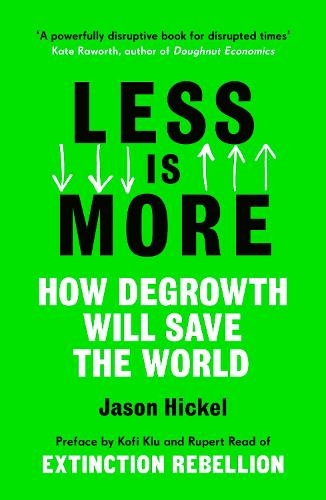 Less is More: How Degrowth Will Save the World by Jason Hickel
Less is More: How Degrowth Will Save the World by Jason Hickel
If we want to have a shot at surviving the Anthropocene, we need to restore the balance. We need to change how we see the world and our place within it, shifting from a philosophy of domination and extraction to one that’s rooted in reciprocity with our planet’s ecology. We need to evolve beyond the dusty dogmas of capitalism to a new system that’s fit for the twenty-first century.
But what about jobs? What about health? What about progress? This book tackles these questions and offers an inspiring vision for what a post-capitalist economy could look like. An economy that’s more just, more caring, and more fun. An economy that enables human flourishing while reversing ecological breakdown. By taking less, we can become more.
 Ecological Debt: Global Warming and the Wealth of Nations by Andrew Simms
Ecological Debt: Global Warming and the Wealth of Nations by Andrew Simms
Millions of people in the West are running up huge ecological debts: from the amount of oil and coal that we burn to heat our houses and run our cars, to what we consume and the waste that we create, the impact of our lifestyles is felt worldwide.
While these debts go unpaid, millions more living in poverty in the majority world suffer the burden of paying dubious foreign financial debts. Ecological Debt explores this great paradox of our age. Highlighting how and why this has happened, it also shows what can be done differently in the future. Now updated throughout, this is a passionate account of the steps we can take to stop pushing the planet to the point of environmental bankruptcy.
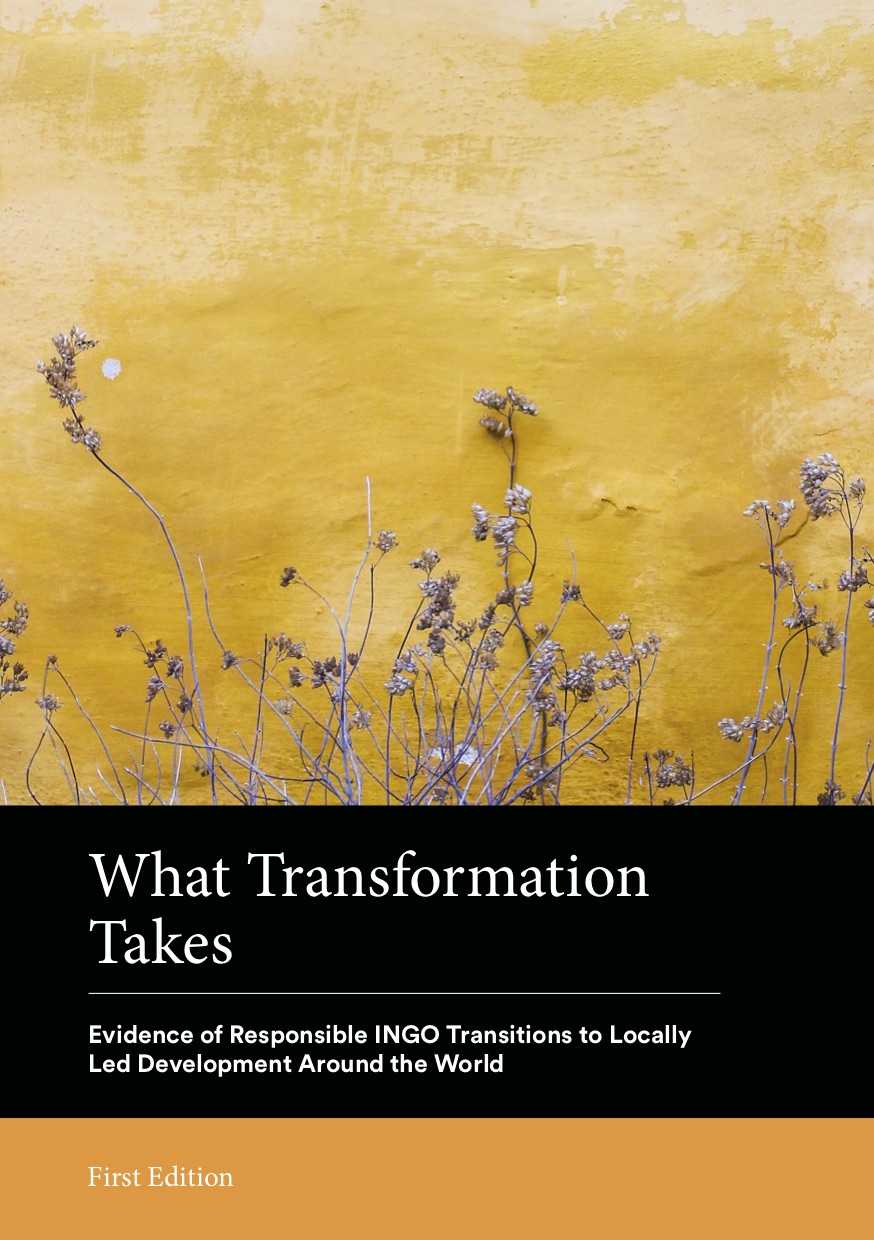 What Transformation Takes: Evidence of Responsible INGO Transitions to Locally Led Development Around the World by CDA Collaborative
What Transformation Takes: Evidence of Responsible INGO Transitions to Locally Led Development Around the World by CDA Collaborative
This book takes readers on a journey to examine responsible transitions from international non-governmental organisations to locally led entities. It is a compilation of the 19 case studies from a three-year programme, Stopping As Success: Transitioning to locally led development (SAS), led by Peace Direct, CDA Collaborative Learning and Search for Common Ground, with funding from USAID.
The case studies are organised by various themes including partnerships and financial sustainability, with additional insight from the SAS programme, including practical lessons for how shifts in international development paradigms can lead to more sustainable, effective and culture- and conflict-sensitive partnerships, contributing to increased local leadership.
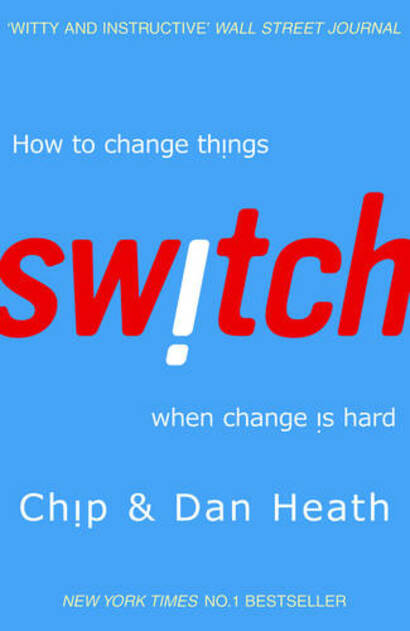 Switch: How to Change Things When Change is Hard by Chip and Dan Heath
Switch: How to Change Things When Change is Hard by Chip and Dan Heath
This is a great book for change-makers. Whether you’re a seasoned campaigner or brand new to the role, Switch has everything you need to start campaigning – delivered with humour and extensive knowledge.
It puts a name to techniques and tactics that you may have always intrinsically done while introducing lots of ideas you might not have. And for those who aren’t as used to advocacy, this is a perfect introduction to understanding and appreciating the emotion and effort behind making change happen.
Category
News & viewsThemes
Communications


